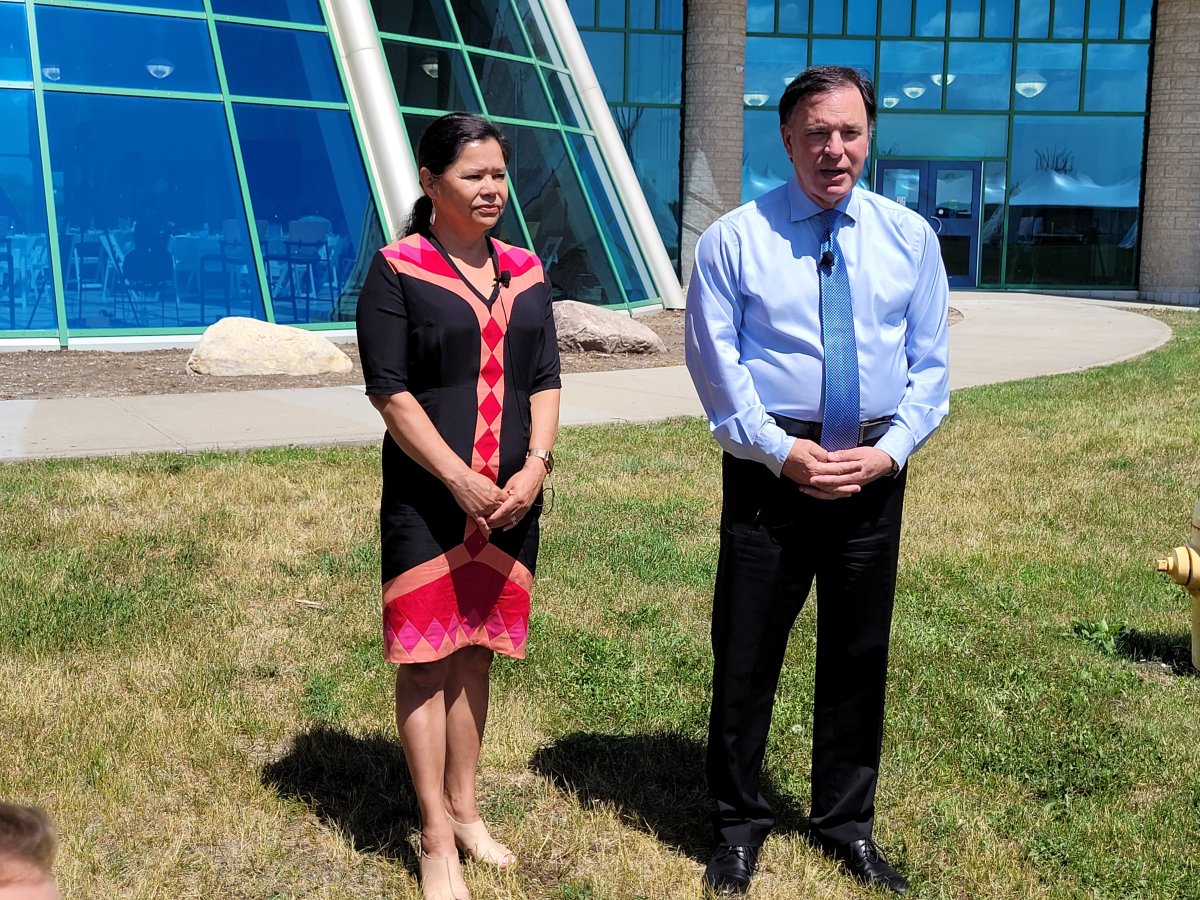Education ministers and Indigenous leaders from across Canada met this week at the First Nations University of Canada (FNUniv) in Regina to discuss Indigenizing education. The Council of Ministers of Education Canada (CMEC) symposium focused on strategic priorities to improve Indigenous curriculum in schools over the next four years.

Ministers and education leaders heard from experts, elders, scholars and Indigenous students at the two-day meeting. The ministers adopted a framework for the CMEC Indigenous Education Plan 2023-27 to advance reconciliation in schools.
“This is an ongoing process. CMEC has been working on this particular project in terms of working to advance First Nations education for many years,” said Gordon Wyant, CMEC Chair and Advanced Education Minister. “This is just a continued advancement of that interest of TRC Call To Action #63, (a call) for us to have an annual review of what we’re doing so we bring people together from all over the country.”
The symposium gave educators and ministers the opportunity to learn first-hand from Indigenous post-secondary institution leaders on decolonizing education and why it’s important to have these discussions at a national level.
“Indigenizing education means that we are uplifting Indigenous peoples, our languages, our traditions, our cultures,” said Jacqueline Ottmann, FNUniv President. “So with that, Indigenous peoples have to be involved at decision-making tables and in many cases, we have to lead those processes … decolonizing education is everyone’s responsibility.”
Wyant said Indigenizing Education means to ensure that people understand why there is a need to decolonize education systems.
“We all have a collective responsibility to understand the past, to understand what the Treaties mean, to understand what the consequences of the residential schools and the historical harms that have been done to First Nations people in this province and across this country,” he said. “At the end of the day, if we all … have that common understanding, that gives us that platform for moving forward.”
Hundreds of people attended the symposium in person and virtually on July 5 and 6, 2022.





Comments